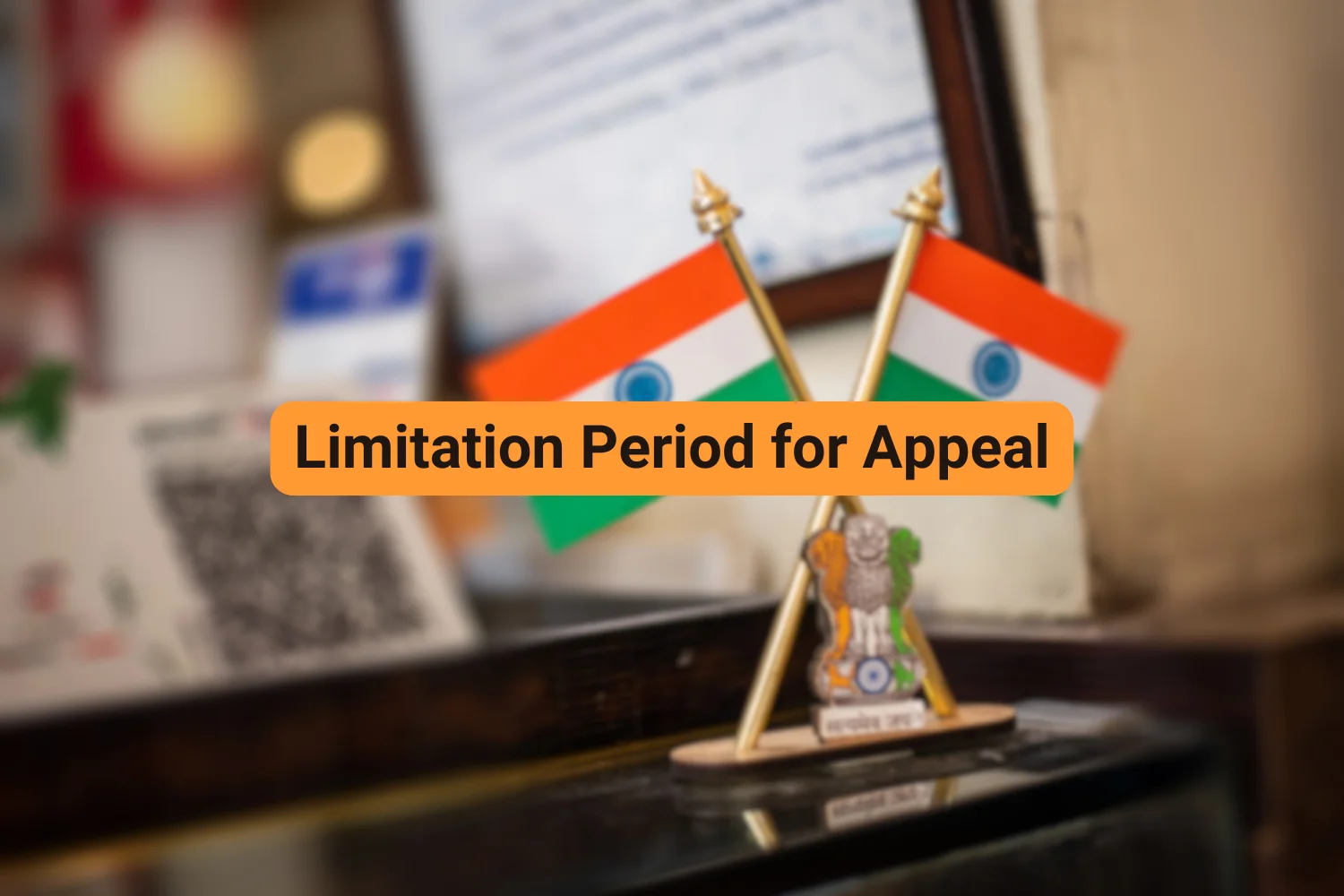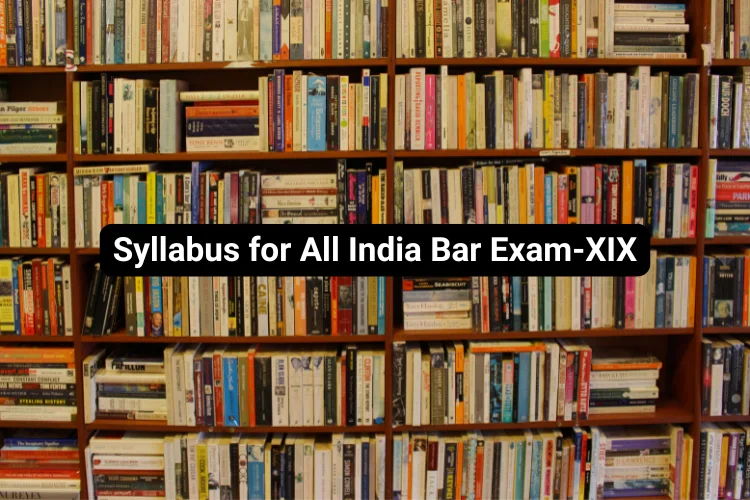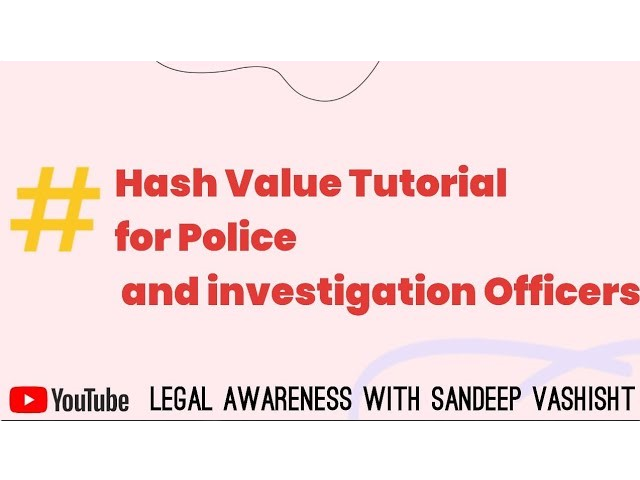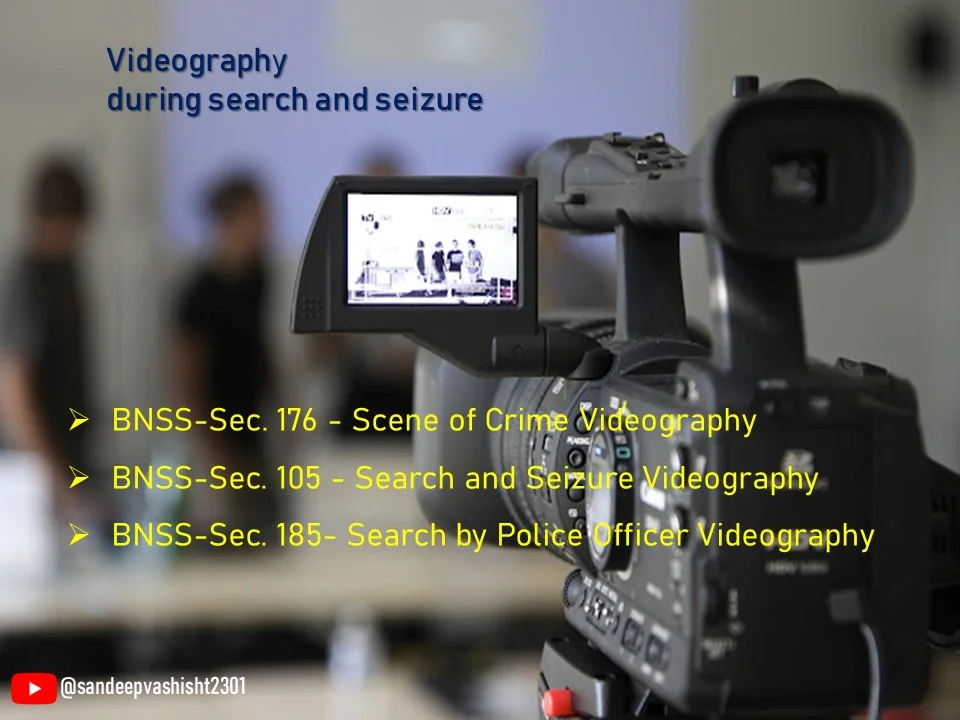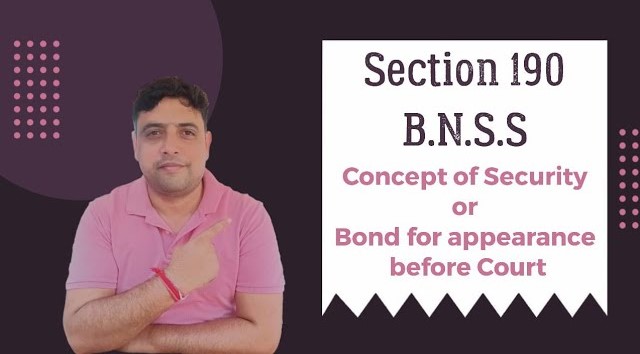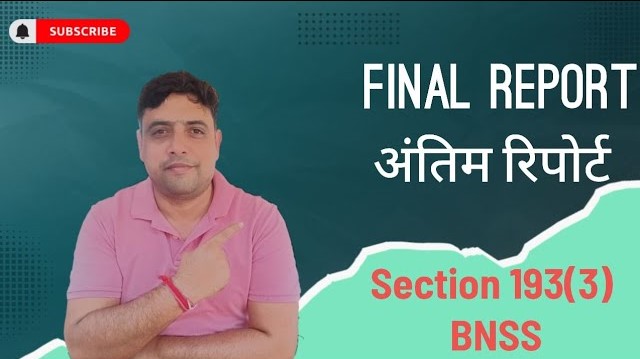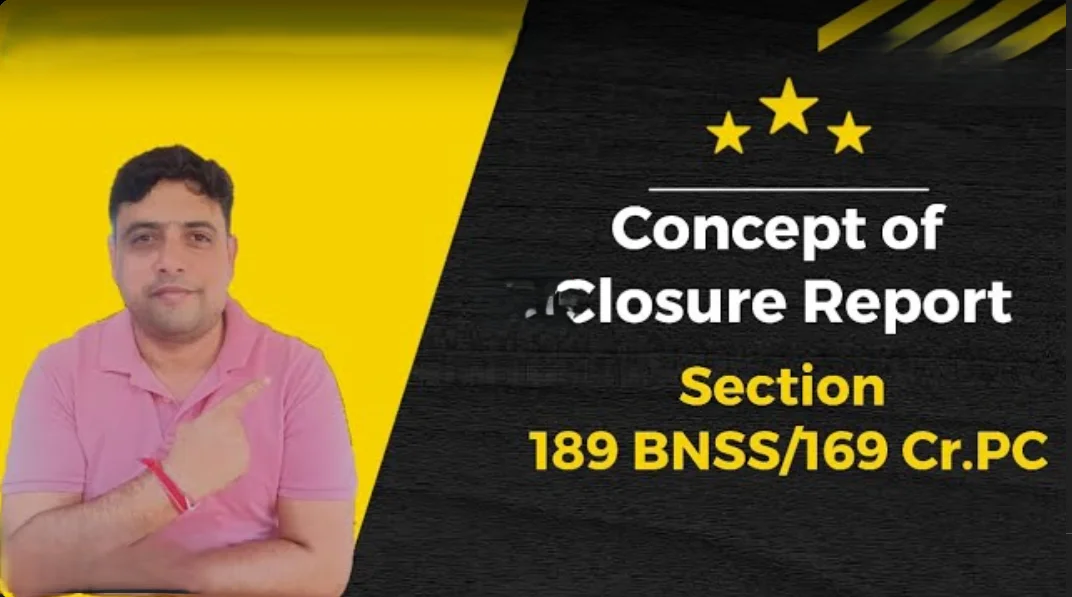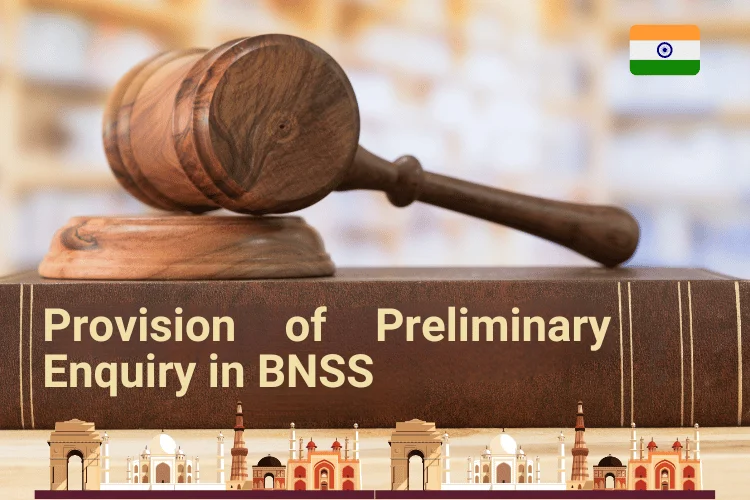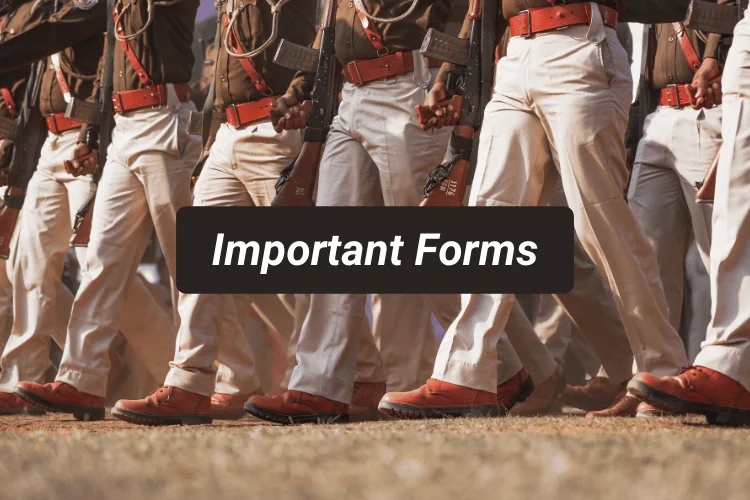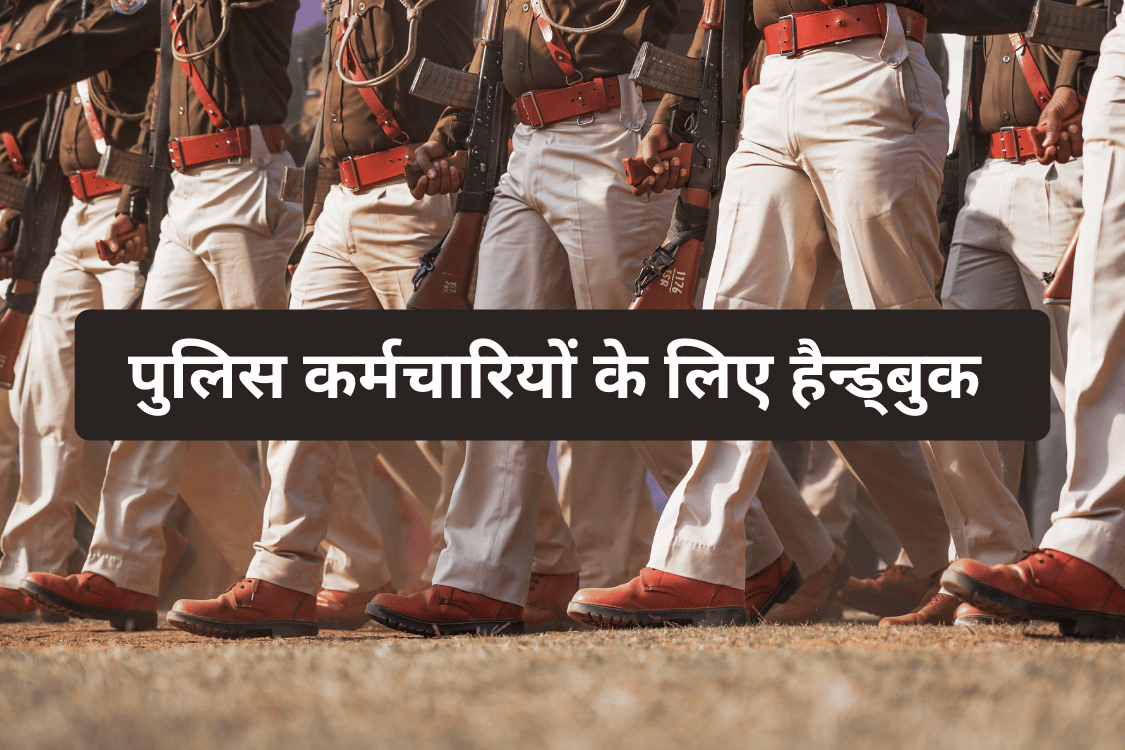Landmark Case Laws on Contempt of Court and Professional Misconduct
Table of Contents
Mohd Aslam vs Union of India 1995 SC 548. 4
Bench : Venkatachalliah M.N. CJI 4
Facts of the case: 4
ISSUES. 4
Contentions of the Parties. 5
Findings of the Court 5
Decision of the Court 6
Principles of law laid down in the case. 6
Supreme Court Bar Association vs Union of India &Anr.1998 SC 1895. 7
History of the Case. 7
Facts of the Case. 7
Issue. 8
Findings of the case. 8
Dr. LP Mishra vs State of U.P. 11
Facts of the Case. 11
Issue. 12
The Supreme Court (SC) held that: 13
Principles of law laid down in the case. 14
PRITHAURI NATH RAM vs STATE OF JHARKHAND AND Ors 2004 SCC 261. 15
Facts of the Case. 15
Issues. 15
Contentions of the Parties. 15
Finding of the Court 15
Decision of the Court 16
Principles of law laid down in the case. 16
Dr. D.C. Saxena vs Hon’ble Chief Justice of India 1996 SC 2481. 18
Facts of the Case. 18
Relief Sought 19
Issues for consideration: 19
Arguments. 20
Decision of the Court 22
Principles of law laid down in the case. 22
PD Gupta vs Ram Murti &Anr. 1998 SC 283. 24
Facts of the case. 24
Issues. 25
Findings of the Court 25
Decision of the Court 26
Principal laid down in the Case : 26
Bar Council of Maharashtra vs M.V. Dhabolkar & Ors 1976 SC 242. 27
Facts: 27
Issue. 27
Findings of Court 28
Decision of the Court 28
Principles of Law laid down in the Case. 29
R.D. Saxena vs Balram Prasad Sharma 2000, SCC 264. 29
Facts of the Case. 29
Issues. 30
Findings of the Court 31
Decision of the Court 31
Principles of law laid down in the case : 32
Bar Council of Andhra Pradesh vs Kurapati Satyanarayana 2003 SC 175. 32
Facts of the Case. 32
Issues. 33
Finding of the Court 33
Decision of the Court 34
Principles of law laid down in the case. 34
Mohd Aslam vs Union of India 1995 SC 548
- The Uttar Pradesh government acquired 2.77 acres of land in Ayodhya in 1991 for developing amenities for pilgrims.
- The acquisition was challenged in court, and three interim orders were made by the High Court and Supreme Court.
- The then-Chief Minister, Kalyan Singh, gave a promise to the National Integration Council and the court that the government would protect the Ram Janma Bhumi Babri Masjid structures and follow and implement the court's orders.
- Despite this, construction started near the disputed structure in July 1992, violating the court's orders.
- The contempt petition accuses Kalyan Singh of encouraging and allowing this violation due to his political and ideological affiliations.
- Whether the undertaking is given by the Chief Minister before the National Integration Council which was in terms recapitulated and incorporated in the order dated 15-11-1991 of this Court could be said to be an undertaking given by the Chief Minister personally or was merely an undertaking on behalf of the U.P. Government?
- Whether there was any construction of a permanent nature carried on the land in wilful disobedience of the orders of the Court?
- Whether these constructional activities were carried on by or at the instance of the State Government or its authorities or were done in connivance with and assistance and encouragement of the State Government; or where they carried out in spite of all reasonable steps taken in that regard by the State Government and the Chief Minister to prevent the same? and
- Whether the State Government and the Chief Minister were not liable for contempt for any alleged wilful disobedience of the orders of this Court ?
Petitioner's Contentions:
- Large-scale violation of Supreme Court and High Court orders by demolishing and constructing a permanent structure on acquired land.
- Respondent Kalyan Singh, connected with BJP and VHP, deliberately encouraged and permitted the violation due to their commitment to building a Ram temple.
Respondent's Contentions (through counsel Venugopal):
- Constructions were done by the State Government for pilgrim facilities (Parikrama).
- Construction was carried out during 'Chaturmas' in July, a religious event when many Sadhus congregate.
- Sadhus commenced building a cement concrete platform, and their large numbers made coercive action difficult without endangering the disputed structure's safety.
- Constructions by Sadhus did not amount to permanent structures prohibited by the Court's order.
Rule of Law
- The petitioner filed a complaint against then-Chief Minister Kalyan Singh for disobeying court orders.
- The petitioner used Article 32 of the Constitution, which allows citizens to approach the court if their fundamental rights are being violated.
- The case started with a dispute over 2.77 acres of land in Ayodhya, which the government acquired for a public purpose using the Land Acquisition Act, 1894.
- The court had previously ruled on the issue, based on promises made by the Chief Minister at the National Integration Council.
- Section 4 of the Land Acquisition Act, 1894 allows the government to acquire land for public purposes and gives officials certain powers to carry out the acquisition.
- Ministers and Officers can be held liable for contempt: The Court ruled that government ministers and officers can be held liable for contempt of court, both in their official capacity and personally, if they willfully disobey court orders or breach undertakings given to the court.
- Breach of undertaking and disobedience of court order: The Court found that Shri Kalyan Singh, the then-Chief Minister, had given an undertaking to protect the disputed structure, but failed to do so, and instead, allowed a flagrant breach of the court's order.
- Government's inaction: The Court rejected the defense that the government was helpless due to a large congregation of sadhus at the site. The Court found that the government did not take any concrete steps to prevent the violation of the court's order and failed to provide evidence of any efforts made to prevent the building of structures on the disputed site.
The Court concluded that it was very unhappy situation that a leader of a political party and Chief Minister has to be convicted of an offence of contempt of court. But it has to be done to uphold the majesty of law. Since the contempt raised large issues affecting the very foundation of secular fabrics of the nation, he was sentenced to undergo a token imprisonment of one day and to pay a fine of Rs. Two thousand only.
No one is above the law. Even a government or a Minister holding a higher position in the government may be held liable for the contempt of Court.
_______________________________________________________________________
In the case of re Vinay Chand Mishra, an advocate was found guilty of criminal contempt of court and he was sentenced to undergo simple imprisonment for a period of six weeks and suspended from practicing as an advocate for a period of three years and it was held that the licence of an advocate to practice legal profession may be suspended or cancelled by the SC or HC in exercise of the contempt jurisdiction.
This decision of the SC in Re V.C. Mishra has been overruled in the present case i.e. Supreme Court Bar Association vs UOI and the SC made it clear that in the exercise of the contempt jurisdiction the licence of an advocate cannot be suspended or cancelled.
- In this case, Supreme Court found the contemner V.C. Mishra an advocate guilty of committing criminal contempt of court for abusing and intimidating Justice Kishote of Allahabad High Court.
- On this Supreme Court, awarded him a suspended sentence of imprisonment together with suspension of his practice as an advocate in the manner directed herein.
- Aggrieved by the direction that the "Contemner shall stand suspended from practising as an Advocate for a period of three years" issued by the Supreme Court by invoking its powers under Articles 129 and 142 of the Constitution, the Supreme Court Bar Association, through its Honorary Secretary, had filed this petition under Article 32 of the Constitution of India, which was directed by the Division bench to be placed before the Constitutional Bench.
The petitioners i.e. Supreme Court Bar Association , seek a declaration that:
- Disciplinary committees of Bar Councils ( set up under the Advocates Act) have exclusive jurisdiction to inquire into and punish advocates for professional misconduct, including contempt of court.
- Supreme Court or High Courts do not have inherent jurisdiction, power or authority to suspend or debar advocates from practicing law, contrary to the ruling in Re Vinay Chander Mishra.
Whether punishment for established contempt of Court committed by advocate can include punishment to debar concerned advocate from practicing by suspending his licence for specified period in exercise of power under Article 129 read with Article 142 of the Constitution of India ?
It is evident from article 142(2) the express substantive statutory provisions dealing with the specific subject cannot be ignored by the Supreme Court. The advocates Act empowers the bar council to punish the advocate for proved professional or other misconduct, the punishment includes to suspend the licence of an advocate.
These statutory powers of the statutory body called the bar council cannot be taken away by Supreme Court.
Article 142 of Constitution of India
Article 142 of the Indian Constitution empowers the Supreme Court to pass decrees or orders necessary for complete justice in any case or matter before it. These decrees or orders are enforceable across India and are significant tools for judicial intervention.
Furthermore, Subject to the any law made by the Parliament in this behalf , the Supreme Court has the power to:
- Make orders for securing the attendance of any person
- Order the discovery or production of any document
- Investigate or punish contempt of itself
However, it's important to note that even as a court of record under common law, the Supreme Court (and High Courts) do not have the power to:
- Suspend or cancel the license of an advocate to practice law
This power lies exclusively with the disciplinary committees of the Bar Councils, as per the Advocates Act, 1961.
Article 129 of Indian Constitution
Supreme Court to be a Court of record -
The Supreme Court shall be a court of record and shall have all the power of such a court including the power of punish for contempt of itself.
Also the court has opined that if the conduct amounts to both, contempt of court and professional misconduct, the court should punish for the contempt and refer the case the bar council to take suitable action.
If the bar council does not take action, the SC in exercise of its appellate jurisdiction under section 38 of the advocate act , direct the bar council to send the case to it and then bar council of India shall be bound to follow the direction and thereafter Supreme Court May pass order cancelling or suspending the licence of an advocate.
The HC may also refer the case to the Council but it has no appellate jurisdiction under section 38 of the advocate act.
Indeed, the constitutional powers under article 129 and 142 cannot, in any way, be controlled by any statutory provisions but at the same time these powers are not meant to be exercised when their exercise may come directly in conflict with what has been expressly provided for in statute dealing expressly with the subject.
When the advocate is guilty of both ‘contempt of court and Professional Misconduct
In this case, Following points was analysed by the court.
Separate Jurisdictions
- Contempt of; Court and Professional Misconduct are separate offenses with different jurisdictions and procedures
- Contempt of Court is punishable by the courts, while Professional Misconduct is punishable by the Bar Councils under the Advocates Act, 1961
Punishment for Professional Misconduct
- Exclusive power to punish an advocate for Professional Misconduct lies with the State Bar Council and Bar Council of India
- Punishment can only be imposed after a charge is established in a manner prescribed by the Act and Rules
Limitations of Court's Power
- The Supreme Court cannot impose a punishment of suspending an advocate's license while punishing for Contempt of Court
- The Court's power under Article 142 is curative in nature and cannot ignore substantive rights of a litigant
Principles of Law
- Contempt of Court jurisdiction should be exercised sparingly and with caution
- Powers under Article 142 are limited and cannot be expanded to include determining Professional Misconduct
- Separate procedures must be followed for punishing Contempt of Court and Professional Misconduct
Overruling of Previous Judgment
- The law laid down in Re: Vinay Chandra Mishra (1995) is overruled to the extent that it allowed the Court to impose punishment for Professional Misconduct while punishing for Contempt of Court.
____________________________________________________________________
On July 15, 1994, a Division Bench consisting of Justice B.M. Lal and Justice A.P. Singh began its proceedings and heard some cases, including Writ Petition No. of 1994 (Deoki Nandan Agarwal vs. Commissioner, Faizabad Division, and others). However, the proceedings were disrupted when Dr. L.P. Misra, an advocate and appellant in Connected Appeal No. 483 of 1994, along with his associates, entered the courtroom shouting slogans and demanding that the court adjourn and stop functioning. Despite this, the court continued to function, prompting Dr. L.P. Misra and his associates, including A.K. Bajpaie, Anand Mohan Srivastava, Y.C. Pandey, and Shamim Ahmad, to approach the dias and attempt to physically confront the judges. In the ensuing altercation, Dr. L.P. Misra grabbed Justice A.P. Singh, forcing the court to adjourn, and then directed abusive language at Justice B.M. Lal, using the following words:
“TUM SHALE UTTH JAAO NAHIEN TO JAAN SE MAAR DAALENGE. TUMNE CHIEF JUSTICE SE KAHA HAI KI LUCKNOW KE JUDGES 5000/- RUPYA LEKAR STAY GRANT KARTE HAI AUR STAY EXTEND KARTE HAIN AAJ 2 BAJE TAK AGAR TUM APNA BORIYA BISTAR LEKAR YAHAN SE NAHIEN BHAG JAATE HO TO TUMHE JAAN SE MAAR DALENGE."
Means, Here's the translation of the text from Hindi to English:
"You will be killed if you don't leave the court now. You have told the Chief Justice that judges in Lucknow grant and extend Stay for a bribe of rupees 5000/-. If you don't leave with your belongings by 2 PM today, you will be killed."
Due to the alarming and threatening situation, the Court was forced to adjourn and the two Hon'ble Judges, Justice B.M. Lal and Justice A.P. Singh, retired to Justice B.M. Lal's chamber. However, Dr. L.P. Misra followed them into the chamber and continued to use abusive language, repeating the same threats. It was only through the intervention of Shri J.N. Bhalla, Additional Chief Standing Counsel for the State of Uttar Pradesh, and some court staff members that Dr. L.P. Misra and his associates were persuaded to leave the chamber. After a brief adjournment, the court reconvened and took serious note of the contemptuous conduct by the appellants. Exercising its powers under Article 215 of the Constitution of India, the court passed the following order:
“This clearly amounts to grossest contempt of the Court, interference in the administration of justice and insult to the court as it scandalises the court and lowers the authority of the Court. Therefore, in our considered opinion, Dr. L.P. Misra, Sri A.K. Bajpaie, Sri Anand Mohan Srivastava, Sri Y.C. Pandey and Sri Shamim Ahmad, Advocates, are exfacie guilty of contempt of court and accordingly in exercise of powers conferred by Article 215 of the Constitution of India, this Court hereby sentence aforesaid advocates, namely
- Dr. L.P. Misra, Advocate,
- Sri A.K. Bajpaie, Advocate,
- Sri Anand Mohan Srivastava, Advocate and
- Sri Shamim Ahmad, Advocate with imprisonment for one month and fine of Rs. 1,000/- (Rupees one thousand) each and in default of payment of fine they shall undergo further imprisonment for 15 days.”
The court further directed the Addl. Registrar of the said court to take steps forthwith for execution of this order.
It is against this order dated 15th July, 1994 passed by the High Court, that the appellants have filed these Criminal Appeals under Section 19 of the Contempt of Courts Act, 1971.
Is it mandatory for the Court to issue a show cause notice to the contemnor when the contempt is committed on the face of the Court ?
Arguments of the Respondent
Mr. Dwivedi, the learned Senior Counsel representing the appellant in Crl. Appeal No. 483 of 1994, challenged the impugned order on the following primary grounds
- court failed to follow the legally prescribed procedure while passing the order.
- court did not provide the appellants with a reasonable opportunity to be heard.
- Even assuming the incident occurred as described in the impugned order, the court should not have passed the order on the same day without issuing a show cause notice or allowing the appellants to explain their alleged contemptuous conduct.
- The court overlooked the minimal requirement of following the prescribed procedure.
- In support of his submission ,counsel drew attention of the court to section 14 of contempt of court Act and Rule 7 and 8 of Chapet XXXV-E of the Allahabad High Court Rules 1952.
- When it is alleged or appears to the Court upon its own view that a person has been guilty of contempt committed in its presence or hearing, the court may cause such person to be detained in custody, and at any time before the rising of the Court, on the same day or as early as possible thereafter, shall -
- cause him to be informed in writing of the contempt with which he is charged, and if such person pleads guilty to the charge, his plea shall be recorded and the Court may in its discretion, convict him thereon,
- if such person refuses to plead, or does not plead, or claims to be tried or the Court does not convict him, on his plea of guilt, afford him an opportunity to make his defence to the charge, in support of which he may file an affidavit on the date fixed for his appearance or on such other date as may be fixed by the court in that behalf,
- after taking such evidence as may be necessary or as may be offered by such person and after hearing him, proceed either forthwith or after the adjournment, to determine the matter of the charge, and
- make such order for punishment or discharge of such person as may be just.
This is Rule 8 of Chapter XXXV-E of the Allahabad High Court Rules, 1952. It states that:
“Notwithstanding Rule 7, a person charged with contempt can apply (orally or in writing) to have the charge tried by a different Judge than the one in whose presence the offence allegedly occurred.” [Section 14 of Contempt of Court Act, 1971]
If the court thinks it practicable and in the interests of proper justice, it will place the matter before the Chief Justice for directions on how to proceed with the trial.
Counsel further urged that the impugned order is totally opposed to the principles of natural justice and, therefore, unsustainable on this score alone. He, therefore, urged that the impugned order be quashed and set aside.
-
-
- The impugned order was passed without following the prescribed procedure, and therefore, cannot be sustained.
- It is true that HC can invoked its powers and jurisdiction under Article 215 of the Constitution but such jurisdiction has to be exercised in accordance with the procedure prescribed by law. It is in these circumstances; the impugned order cannot be sustained. Principal
- With a view to avoid embarrassment to the party’s contempt proceedings were remotes to principal seat of High Court. And the learned Chief Justice of the Allahabad High Court was requested to nominate a Bench to hear and dispose of the contempt proceedings in accordance with Chapter XXXV-E of the Allahabad High Court Rules, 1952.
- The High Court was directed to dispose of the case as early as possible, preferably within six months from the date of receipt of the order.
- The appeal was partly allowed, and the order dated 15th July, 1994, passed by the High Court in Criminal Misc. Case No. 2058 (C) of 1994, was set aside.
This case is remarkable for laying down the principle that although High Court enjoy vast powers under Article 215 of the Constitution, still it is bound to follow the minimum procedure prescribed by law even if the contempt is committed on the face of it.
_________________________________________________________________
Appellant filed an application under Sections 11 and 15 of the Contempt of Courts Act, 1971 read with Article 215 of the Constitution. The foundation of such application was alleged non-compliance of the directions given by a learned Single Judge of the Patna High Court by order dated 30.3.1999. another learned Single Judge of the said High Court while dealing with the said application held that it would not be proper to take any action for contempt and called upon the parties to satisfy him that the direction contained in the order dates 30.3.1999 for the non compliance of which present application has been filed, could have been issued. After in depth analysis, the learned judge came to the conclusion that the directions could not have given and therefore, there was no scope for taking any action for contempt. It is against this order that the present appeal has been filed by the appellant.
The only issue that arises for the consideration of the Court is whether Validity of order can be examined in Contempt Proceedings?
Appellant's argument:
- The learned Judge exceeded his jurisdiction by reviewing the order of another Single Judge, which is not permissible in contempt proceedings.
- The Judge should have only considered whether there was disobedience to the order, not whether the order was legal or valid.
State's argument:
- If the order was unimplementable, the Single Judge dealing with the contempt application had the authority to assess its legality.
- The Judge was entitled to consider whether the order was valid or not, as it was a prerequisite to determining whether contempt proceedings could be initiated.
The Supreme Court concluded that:
- When dealing with a contempt application, the Court's primary concern is whether the earlier decision, which has attained finality, has been complied with or not.
- The Court cannot examine the correctness of the earlier decision or take a different view from what was taken earlier.
- If a party is aggrieved by the order, they should promptly initiate appellate proceedings; they cannot ignore the order and later claim difficulties in implementation when contempt proceedings are initiated.
- The Court relied on its previous decision in Mohd. Iqbal Khandey v. Abdul Majid Rather (AIR 1994 SC 2252) to support this conclusion. In essence, the Court emphasized that contempt proceedings are not the appropriate forum to re-litigate the correctness of an earlier decision, and parties must pursue appellate remedies if they are aggrieved by an order. The Supreme Court Further held that:
- If a party is unhappy with an order, they should either appeal to the original Court or a higher Appellate Court.
- The rightness or wrongness of the order cannot be debated in contempt proceedings.
- The order must be obeyed, regardless of whether it is right or wrong. Disobedience constitutes contempt.
- When dealing with contempt applications, the Court cannot go beyond the original order and question its correctness or give additional directions.
- The Court's role in contempt proceedings is limited to determining if the order was disobeyed, not to review or modify the original order.
In essence, the Supreme Court emphasized that contempt proceedings are not the appropriate forum to challenge the validity or correctness of an order. Instead, parties must pursue appeals or reviews through the proper channels.
Allowing the appeal, the Supreme Court set aside the order of the High Court and remitted the matter for fresh consideration.
This case is remarkable for setting out the limits within which a Court, dealing with an application for contempt has to work. While dealing with such application, the said Court cannot traverse beyond the order, non-compliance of which is alleged. It cannot test correctness or otherwise of the order or give additional direction or delete any direction.
____________________________________________________________________
- The petitioner filed a public interest litigation (PIL) under Article 32 of the Constitution, seeking direction to Sri P. V. Narsimha Rao, the President of Indian National Congress and former Prime Minister, to pay Rs. 8.29 lakhs to the Union of India for using Indian Air Force aircraft/helicopters from October 1, 1993, to November 30, 1993.
- On July 17, 1995, the PIL was posted for hearing before the Chief Justice of India and Justice S.C. Sen, and the Solicitor General was directed to verify the averments to be correct and directed the petition to be listed after two weeks.
- On August 7, 1995, the PIL was dismissed by a Bench comprising the Chief Justice, Justice S.C. Sen, and Justice K.S. Paripoornan.
- The petitioner filed another PIL against the Chief Justice of India, Justice A.M. Ahmadi, the registry raised objections but at the insistence of the petitioner, it was posted for hearing with office objections before a three-judge Bench comprising Justice J.S. Verma, Justice N.P. Singh, and Justice S.P. Bharucha.
- Court pointing out that the averments were scandalous, despite it , the petitioner reiterated the allegations and sought a declaration:
- that justice A.M. Ahmadi is unfit to hold the office as chief justice of india;
- that he should be stripped off his citizenship;
- to direct registration of an fir against him under various provisions of indian penal code for committing forgery and fraud and under the prevention of corruption act;
- to direct prosecution of him under the prevention of corruption act;
- to direct him to defray from his personal pocket the expenses incurred by the petitioner in filing the two writ petitions i.e. w.p. no. 432/95 and the second writ petition;
- to direct justice a.m. ahmadi to reimburse from his pocket to the public exchequer the entire loss caused to the state, as a consequence of non-payment of the dues by sri p. V. Narasimha rao with interest at 18% per annum and
- other consequential directions.
-
-
- The Chief Justice of India (CJI) fabricated court proceedings of August 7, 1995, and deceived the petitioner by not mentioning the fact of appearance of the Solicitor General. And thereby, in the words of petitioner , CJI had played a fraud upon him.
- The CJI violated the fundamental rights of the petitioner and the people of India by wrongly dismissing the writ petition.
- The CJI failed to perform his duties
- The CJI misused his position by allowing his son, a practicing lawyer, to stay in his official residence and potentially misuse official facilities and influence.
- The petitioner argues that if a public servant causes loss to the State, same is sought to be recovered from him, so in the same manner a constitutional functionary like a judge should also be liable for damages. In other words, if the Court dismisses a petition filed by a litigant, the resultant costs must be borne by the presiding officer of the Court. Equally, the loss caused to the State should also be recoverable from the presiding Judge from his personal pocket.
- The petitioner suggests the CJI should proceed on leave to avoid influencing the case.
“The court dismissed the second writ petition, calling the allegations "scandalous" and "reckless". The court was surprised that a university professor like the petitioner would file such a petition. The court found the petitioner's behaviour during the hearing to be irresponsible and issued a notice to show cause why he should not be punished for criminal contempt of court. The petitioner replied, reiterating his allegations, but added a footnote saying he was willing to modify some passages if seems to be inappropriate.”
- Whether the above stated conduct of the petitioner amounts to contempt of court?
- Are the provisions of the Contempt of Courts Act, 1971 ultra vires Article 19(1) (a) of the Constitution?
- Is it relevant in a contempt proceeding that the petitioner did not seek any personal gain for himself and that he had made the averments for public good with no intention to scandalise the court?
- Whether defence U/Sections 4&5 of Contempt of Courts Act, 1971 are available to the contemnor?
Whether the above stated conduct of the petitioner amounts to contempt of court?
-
- The petitioner contended that the respondent (Chief Justice) had a personal interest in the case and constituted a bench to hear the second writ petition, making him a judge in his own cause. This allegation is considered contemptuous as it impugns the respondent's impartiality and integrity.
- The petitioner accused the respondent of violating his oath of office and failing to perform his fundamental duties by dismissing the second writ petition. The court held that this allegation is baseless and amounts to contempt, as a judge's summary dismissal of a petition is not a violation of their oath or duties.
- The petitioner made serious allegations of fabrication, forgery, fraud, and inaccurate recording of proceedings against the respondent, which is considered contemptuous as it aims to undermine the court's authority and respect of a judge in the performance of his judicial function.
- The petitioner attributed improper motives to the respondent based on an unverified article published in "India Today", demonstrating recklessness and irresponsibility. This allegation is considered contemptuous as it is based on unverified sources and aims to discredit the respondent.
- The petitioner argued that a judge should be personally liable for costs and losses incurred by a litigant and the state due to a judicial decision, which is considered contemptuous as it interferes with the judicial process and lowers the court's authority. The petitioner implied that the respondent should bear personal liability for the costs and losses incurred due to the dismissal of the writ petition.
Are the provisions of the Contempt of Courts Act, 1971 ultra vires Article 19(1) (a) of the Constitution?
The freedom of speech and expression guaranteed by Article 19(1)(a) is a fundamental right in our democratic society, essential for open discussion, political participation, and the formation of public opinion. However, this freedom is not absolute and is subject to reasonable restrictions, such as the protection of others' dignity and reputation, and the maintenance of democratic order. The State has a legitimate interest in regulating speech and expression to prevent defamation, libel, and incitement to offense. The Constitution balances the right to free speech with the need to protect the judiciary, the courts, and the administration of justice from unfounded allegations and contempt. Therefore, while freedom of speech and expression is a precious liberty, it is not a license to make baseless accusations against institutions, including the judiciary, and is subject to the limitations and responsibilities outlined in Articles 19(2), 129, and 215 of the Constitution.
3. Is it relevant in a contempt proceeding that the petitioner did not seek any personal gain for himself and that he had made the averments for public good with no intention to scandalise the court?
The petitioner argued that his truthful and factual statements, was made without malice or personal gain and hence , should not be considered scandalous. However, the court held that even without proof of intent (mens rea), statements that:
- Create disaffection or disbelief in the judicial system
- Obstruct the administration of justice
- Lower the authority or majesty of the law
Constitute criminal contempt. Proof of mens rea is immaterial in contempt proceedings. However, the court must consider:
- The nature of the statements
- The context in which they were made
- Whether the petitioner foresaw the potential consequences
The court's focus is on whether the statements interfere with the course of justice, regardless of intent or motive. Truthful statements can still be considered contemptuous if they have the potential to undermine the judicial system or obstruct justice.
Whether defence U/Sections 4&5 of Contempt of Courts Act, 1971 are available to the contemnor?
The court rejected the contemnor's defense that his statements were a fair and accurate report of judicial proceedings or a fair criticism thereof, as they were not published for the public's benefit but rather made in a pleading to discredit the court. The court also refuted the contemnor's reliance on Section 5 of the Contempt of Courts Act, 1971, which allows for fair and accurate reporting of judicial acts, as his statements were not objective, respectful, or moderate, but rather a personal attack on the judge.
The court emphasized that while citizens have the right to express their honest opinions about the correctness or legality of a judgment or order, they must do so in a dignified and respectful tone, without overstepping the bounds of acceptable criticism. The court welcomed honest and respectful scrutiny of the administration of justice, but would not tolerate personal attacks on judges. Citizens are entitled to point out errors or defects in judgments or orders using moderate language, but must do so without violently attacking the judiciary.
The court, considering the severity of the contemptuous statements, their reckless and intemperate language, and the petitioner's influential position, deemed a fine insufficient as punishment. The court sentenced the petitioner to:
- Three months of simple imprisonment
- A fine of Rs. 2,000 (Rupees Two Thousand)
If the fine is not paid within three months, the petitioner will face an additional:
- One month of simple imprisonment
This punishment aims to hold the petitioner accountable for their grave and reckless contempt of court.
The case laid down the following principles of law:
-
-
- Freedom of speech and expression under Article 19(1)(a) comes with corresponding duties and responsibilities, and limitations on its exercise. It is not a license to make baseless allegations against institutions, including the judiciary.
-
-
- Citizens have the right to express their honest opinions about the correctness of judgments, orders, or sentences, provided they use dignified and moderate language to point out errors, defects, or illegalities. Constructive public criticism, even if it slightly oversteps its limits, is permissible and beneficial for preserving democratic health of public institutions. However, personal attacks on judges are not acceptable.
-
-
- Scandalising the judiciary or courts, including making statements that bring the authority and administration of law into disrespect or disregard, constitutes contempt. Any acts that offend the dignity or majesty of the court or challenge its authority are also contemptuous.
-
-
- In contempt proceedings, it is not necessary to prove actual intention to interfere with the administration of justice. Making reckless allegations or vilifying the conduct of the court or judge is sufficient to constitute contempt, and the defense of intention is not available.
These principles aim to strike a balance between free speech and the need to maintain the dignity and authority of the judiciary, ensuring that citizens can express their opinions while also respecting the integrity of the legal system.
______________________________________________________________
Background:
- P.D. Gupta, an advocate, was accused of professional misconduct and appealed against a one-year suspension order by the Bar Council of India.
- The complaint arose from his purchase of a property from his client Vidya Wati in 1982, while representing her in a dispute over the properties of her deceased brother Srikishan Dass.
Srikishan Dass's Properties:
- Srikishan Dass died on January 5, 1980, leaving behind extensive properties (movable and immovable).
- Vidya Wati claimed to be his sister and only legal heir, while Ram Murti and two others also claimed to be his heirs, propounding three different wills.
Legal Proceedings:
- Vidya Wati filed a petition for probate/letters of administration in the District Judge's court.
- Ram Murti and others filed separate proceedings under Section 276 of the Indian Succession Act.
- Vidya Wati also filed a civil suit in the Delhi High Court for declaration and injunction against various defendants, including Ram Murti.
P.D. Gupta's Involvement:
- P.D. Gupta was Vidya Wati's counsel throughout the proceedings.
- He purchased the ground floor of property No. 4858-A, 24 Daryaganj from Vidya Wati on December 30, 1982.
- His son-in-law, Suresh Kumar Gupta, purchased the second floor of the same property for Rs. 3,40,000 in December 1982.
Complaint Against P.D. Gupta:
- Ram Murti filed a complaint against P.D. Gupta, alleging professional misconduct.
- The complaint alleged that P.D. Gupta knew about the doubts over Vidya Wati's inheritance rights due to pending proceedings, yet he purchased the property from her.
Bar Council's Order:
- The Disciplinary Committee of the Bar Council of India found P.D. Gupta guilty of misconduct and suspended him from practice for one year.
- P.D. Gupta appealed against this order in the Supreme Court.
-
-
- Is appellant P.D. Gupta guilty of professional or other misconduct and if so is the punishment awarded to him disproportionate to the professional or other misconduct of which he has been found guilty?
Arguments of the Appellant
The lawyer for the appellant (P.D. Gupta) argued that:
- If P.D. Gupta is found guilty of professional misconduct on the basis of complaint filed by an interested person like Ram Murti , it would prevent lawyers from defending their clients fearlessly in the future.
- The disciplinary proceedings against P.D. Gupta were unfair because no specific charges were framed, which causes prejudiced P.D. Gupta in the conduct of his defence.
- P.D. Gupta is no longer involved with the property because he sold it.
- P.D. Gupta was well aware of the allegations against him and had sufficient experience to defend himself.
- The charge against him was not complicated, and he had enough time to prepare his defense.
- P.D. Gupta bought the property at a very low price and sold it for a huge profit, which complicated the matter further.
- As a lawyer, P.D. Gupta had a lot of influence over his client and it is imperative duty of the lawyer to be fair to the court, the opposing party, and his client, because while conducting the case, he functions as officer of the court.
- P.D. Gupta's actions raised serious questions about his fairness and professionalism, and he failed to meet the high standards expected of a lawyer.
- By buying the property, P.D. Gupta undermined the justice system and brought the administration of justice into disrepute.
Dismissing the appeal, the Court upheld the punishment awarded to the appellant by the Bar Council of India.
- The administration of justice must be kept pure, clean, and unpolluted. Both the Bench (judges) and the Bar (lawyers) have a responsibility to maintain the integrity of the justice system. Lawyers, in particular, must conduct themselves in a manner that is beyond reproach, as they are the pool from which future judges are drawn.
- The Bar Council of India and State Bar Councils are statutory bodies established under the Advocates Act, 1961. They have various functions under the Act and rules, including laying down standards of professional conduct for lawyers. While the Code of Conduct may not be exhaustive, these representative bodies of advocates are responsible for maintaining discipline among their members and taking action against those who deviate from the expected standards of conduct.
These principles emphasize the importance of maintaining the integrity of the justice system and the crucial role that lawyers play in upholding this integrity.
__________________________________________________________________________
- The respondents, were practicing lawyers, positioned themselves at the entrance to the Magistrates Courts to solicit clients or litigants.
- At sight , they rushed towards potential litigants, engaging in physical fights and undercutting fees to secure work.
- This unprofessional behaviour sometimes extended into the Bar Library.
- The High Court received a complaint against these advocates and referred the matter to the Bar Council of Maharashtra.
- The Bar Council of Maharashtra's Disciplinary Committee found the respondents guilty of professional misconduct and suspended them for three years.
- The respondents appealed (within 60 days) to the Disciplinary Committee of the Bar Council of India.
- The Disciplinary Committee of Bar Council of India set aside the decision of bar council of Maharashtra.
- It set aside the order on the ground of Rule 36 of Bar council of India
Rule 36: says that :To be amenable to disciplinary jurisdiction, an Advocate must have:
-
- Solicited work
- From a particular person
- With respect to a case
Unless all three elements are satisfied, an Advocate cannot be said to have acted beyond the standard of professional conduct and etiquette.
Appeal:
- The State Bar Council of Maharashtra has appealed against the decision of the Bar Council of India's Disciplinary Committee.
- The appeal challenges the Committee's interpretation of Rule 36 and its decision to absolve the respondents of professional misconduct charges.
- While referring a complaint to its Disciplinary Committee under Section 35(1) of the Advocates Act, is it mandatory for a Bar Council to state that it has 'Reason to Believe that misconduct has been committed.
- Whether the conduct of the respondents amounts to professional misconduct ?
- The Court rejected the respondents' argument that the Bar Council of Maharashtra's resolution did not explicitly state that it had reason to believe that the advocates were guilty of professional misconduct.
- The Court held that:
- The requirement of "reason to believe" is not a formalized procedural hurdle, but rather a safeguard against frivolous inquiries.
- The Bar Council's resolution, which states that it has considered the complaint and decided to refer the matter to the disciplinary committee, implicitly indicates that it had reason to believe that the advocates were guilty of professional misconduct.
In essence, the Court found that the Bar Council's resolution was sufficient to establish that it had reason to believe that the respondents were guilty of professional misconduct, and therefore, the disciplinary proceedings were valid.
- Justice Krishna Iyer criticized the Disciplinary Committee of the Bar Council of India for its narrow interpretation of Rule 36, which led to the respondents being absolved of professional misconduct charges. He stated that:
- It is unfortunate that the Committee focused on splitting the text of the rule rather than considering the broader canons of ethics and high standards of behavior expected of legal practitioners.
- The Committee's exercise of rediscovering the three elements of Rule 36 was unnecessary and unhelpful.
- The provisions regulating the conduct of legal practitioners should be interpreted in light of established case law and the high standards of behavior accepted by the legal profession as a whole.
In essence, Justice Krishna Iyer emphasized the importance of considering the spirit of the rules and the ethical standards of the legal profession, rather than relying solely on a narrow interpretation of the text.
- Ordered that the individuals responsible for the misconduct (delinquents) be identified and dealt with accordingly, based on their individual actions.
- Expressed trust that the standards and sanctions of the national Bar will be maintained in a dignified and deterrent manner, to ensure that public confidence in the justice system is not shaken or shocked.
Thus, the Court:
- Directed that those responsible for the misconduct be held accountable.
- Emphasized the importance of maintaining high standards and imposing appropriate sanctions to uphold the integrity of the legal profession and public trust in the justice system.
- Lawyers have a special responsibility to behave in a professional and ethical way, just like great leaders Lincoln , Gandhi or Lenin.
- The legal profession is important for society, and lawyers have a key role in making sure justice is served and people's rights are protected. Because of this important role, lawyers have been given the authority to regulate themselves and make sure their own members behave ethically.
- This authority is a trust that must not be abused by allowing lawyers to engage in unprofessional behaviour, like fighting over clients.
In short, lawyers have a high standard to uphold, and they must behave in a way that maintains the integrity and dignity of their profession.
- The appellant advocate was enrolled with the State Bar Council of Madhya Pradesh.
- In 1990, he was appointed as legal advisor to the Madhya Pradesh State Cooperative Bank Ltd. (Bank).
- The Bank retained him for several years and also engaged him to conduct cases in which the Bank was a party.
- On 17.7.1993, the Bank terminated his retainership and requested him to return all the case files relating to the Bank.
- Instead of returning the files, the appellant forwarded a consolidated bill to the Bank showing an amount of Rs. 97,100/- as the balance payable by the Bank towards his legal remuneration.
- He informed the Bank that the files would be returned only after his dues were settled.
- The Bank disclaimed any liability outstanding from them to the appellant.
- A complaint was filed by the Managing Director of the Bank before the State Bar Council of Madhya Pradesh alleging that the appellant is guilty of professional misconduct by not returning the files to his client.
- In his reply, the appellant admitted that the files were not returned but claimed that he has a right to retain such files by exercising his right of lien and offered to return the files as soon as payment is made to him.
- The State Bar Council failed to dispose of the complaint even after the expiry of one year.
- Under Section 36-B of the Advocates Act, the proceedings stood transferred to the Bar Council of India.
- After holding an inquiry, the Disciplinary Committee of the Bar Council of India reached the conclusion that the appellant is guilty of professional misconduct.
- The Bar Council of India debarred the appellant from practicing for a period of 18 months and also imposed a fine of Rs. 1000/-.
- The appellant filed an appeal against this decision before the Supreme Court.
- Whether an advocate can retain the files of his client as a lien for the unpaid fee ?
- Whether the refusal of an advocate to return the papers of his client amounts to professional misconduct ?
- The Court rejected the appellant's argument based on Section 171 of the Indian Contract Act, which allows certain professionals (including attorneys) to retain goods as security for a general balance of account. The Court held that:
- Files containing copies of records cannot be equated with goods under Section 171.
- Goods must have marketability and be disposable for consideration of money to fall within the purview of Section 171.
- Case files do not meet these criteria and therefore cannot be retained as security for fees.
The Court also referred to Rules 28 and 29 of the Bar Council of India rules, which allow an advocate to appropriate unexpended amounts paid for expenses or deduct fees from client moneys in their hands, but do not provide a lien on litigation files. The Court noted that permitting counsel to retain case files for fees claimed could be exploitative, particularly in India where many litigants are illiterate.
- The Court's ruling on the second issue:
- The appellant's refusal to return the case files to the client upon demand constitutes professional misconduct under Section 35 of the Advocates Act.
- This misconduct warrants punishment.
- The Court's reasoning:
- An advocate has a fiduciary duty to return client files upon request.
- Refusal to do so is a breach of this duty and amounts to professional misconduct.
- In this case, the appellant's actions were found to be in violation of this duty, making him liable for punishment.
The Court's decision was as follows:
The appellant was found guilty of professional misconduct for refusing to return client files. However, the Court took into account that there was no clear precedent on this issue, and therefore decided not to impose a harsh punishment. Instead, the appellant was reprimanded. The Court made it clear that if any advocate commits similar misconduct in the future, they will face more severe punishment, to be determined by the Bar Council. Additionally, the Court emphasized that the relatively lenient punishment in this case should not be seen as a precedent for future cases.
- A litigant has the right to change their advocate if they feel that the current advocate is not capable of representing them effectively or if they believe their conduct is harmful to their interests.
- A client has the freedom to terminate an advocate's engagement for any reason.
- If a client chooses not to continue with an advocate, it is a professional requirement for the advocate to return the brief to the client, regardless of whether they have a lien on the litigation papers.
- An advocate is not without remedies to recover their legitimate fees, even if they return the brief to the client.
In essence, the case emphasizes the importance of a litigant's freedom to choose their advocate and the professional obligations of an advocate to respect this choice, while also acknowledging the advocate's right to seek payment for their services.
- Kurapati Satyanarayana, an advocate, hereinafter refereed as respondent in the case was engaged by Sri Gutta Nagabhushanam (the de facto complainant) for filing execution proceedings for realization of decretal amount.
- The respondent received a total of Rs. 14,600/- on various dates, but didn’t make payment of the same to the defacto complainant.
- On October 18, 1996, the de facto complainant filed a complaint with the Additional District Munsif in Eluru, alleging that the advocate had not paid the funds owed to him.
- The complaint, along with the advocate's response and supporting documents, was sent to the Bar Council of Andhra Pradesh for further action.
- State bar council referred the matter to its disciplinary committee found the respondent guilty of misconduct , State Bar Council ordered the removal of his name from the rolls of the state Bar Council.
- The Respondent filed an appeal with the Disciplinary Committee of the Bar Council of India (BCI), which upheld the factual findings of the State Bar Council's Disciplinary Committee. However, the BCI concluded that the Respondent had not engaged in professional misconduct, although he may have been negligent in his handling of the matter. The BCI found that the Respondent's negligence did not involve moral turpitude and that his failure to return the decretal amount was due to his personal domestic circumstances, rather than any intention to misappropriate the funds. Accordingly, the BCI set aside the order passed by the State Bar Council, exonerating the Respondent of any professional misconduct.
- Then, the Bar Council of Andhra Pradesh had filed an appeal against the order of the Disciplinary Committee of the Bar Council of India (BCI).
- Standing of the State Bar Council to file an appeal under Section 38 of the Advocates Act, 1961.
- Is the respondent guilty of committing professional misconduct?
Finding 1:
- The respondent argued that the appeal was not maintainable since the Bar Council of Andhra Pradesh was not a "person aggrieved" within the meaning of Section 38 of the Advocates Act, 1961.
- The Court rejected this argument, relying on the Supreme Court's decision in Bar Council of Maharashtra v. M.V. Dabholkar (1975), In which, the Supreme Court held that the Bar Council plays a dual role: as a prosecutor through its Executive Committee and as a quasi-judicial body through its Disciplinary Committee. As a prosecutor, the Bar Council has the right to file an appeal as a "person aggrieved". Therefore, the Court held that the appeal filed by the Bar Council of Andhra Pradesh was maintainable.
Finding 2:
The Court examined the order of the Disciplinary Committee of the BCI and found it to be unsustainable. The Court held that BCI had trivialized the respondent's misconduct, and expressed its displeasure at the BCI's approach, noting that misappropriation of client funds is a grave professional misconduct.
- The Court relied on its own decision in Harish Chandra Tiwari v. Baiju (2002), which held that misappropriation of client funds is one of the most serious forms of misconduct.
Allowing the appeal, the Court set aside the order passed by the Disciplinary Committee of the Bar Council of India and restored that of the Disciplinary Committee of the State Bar Council
Adherence to the correct professional conduct in the discharge of one's duties as an advocate is the backbone of legal system. Any laxity while judging the misconduct which is not bonafide and dishonest would undermine the confidence of the litigant public resulting in the collapse of legal system.







